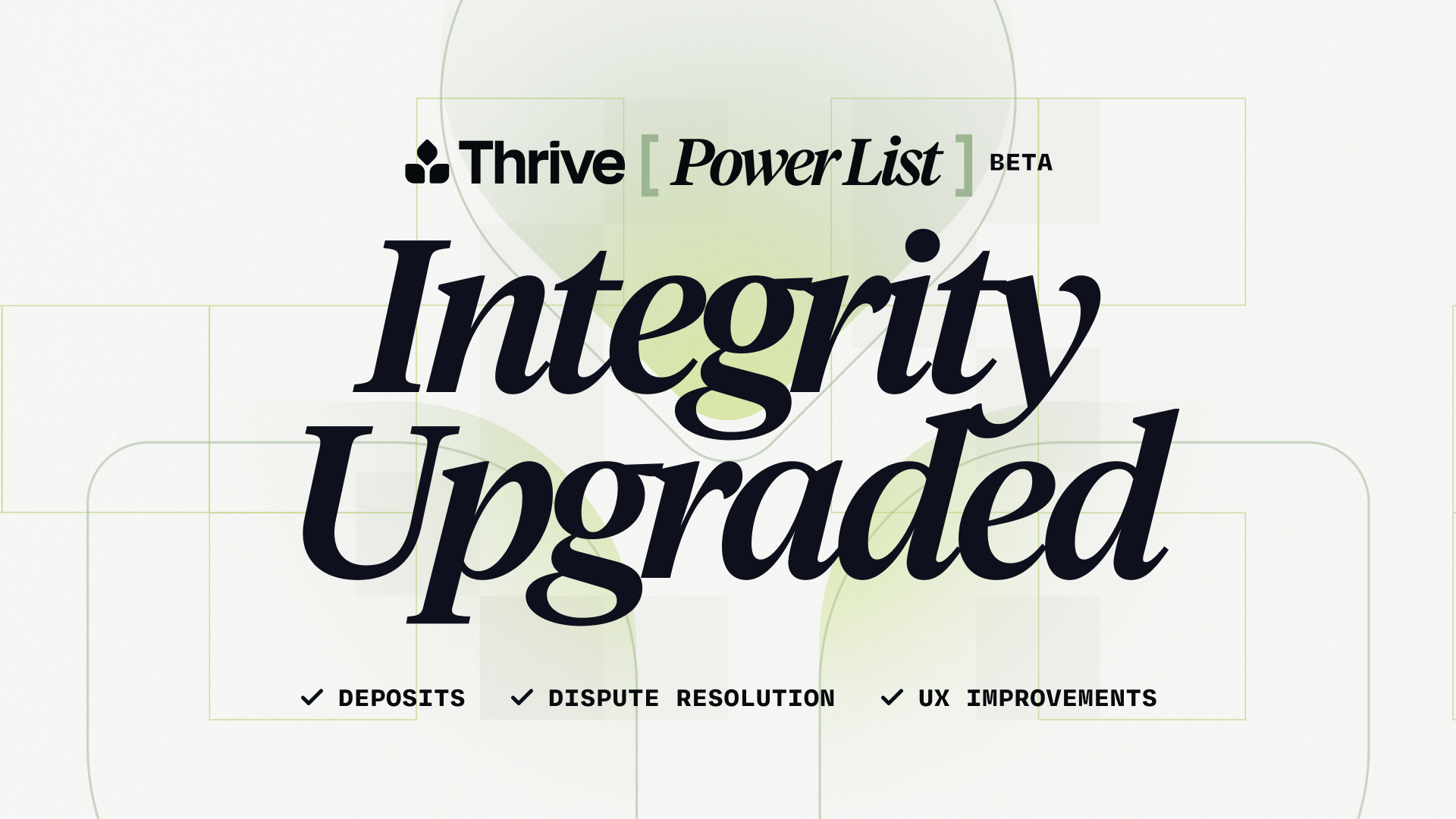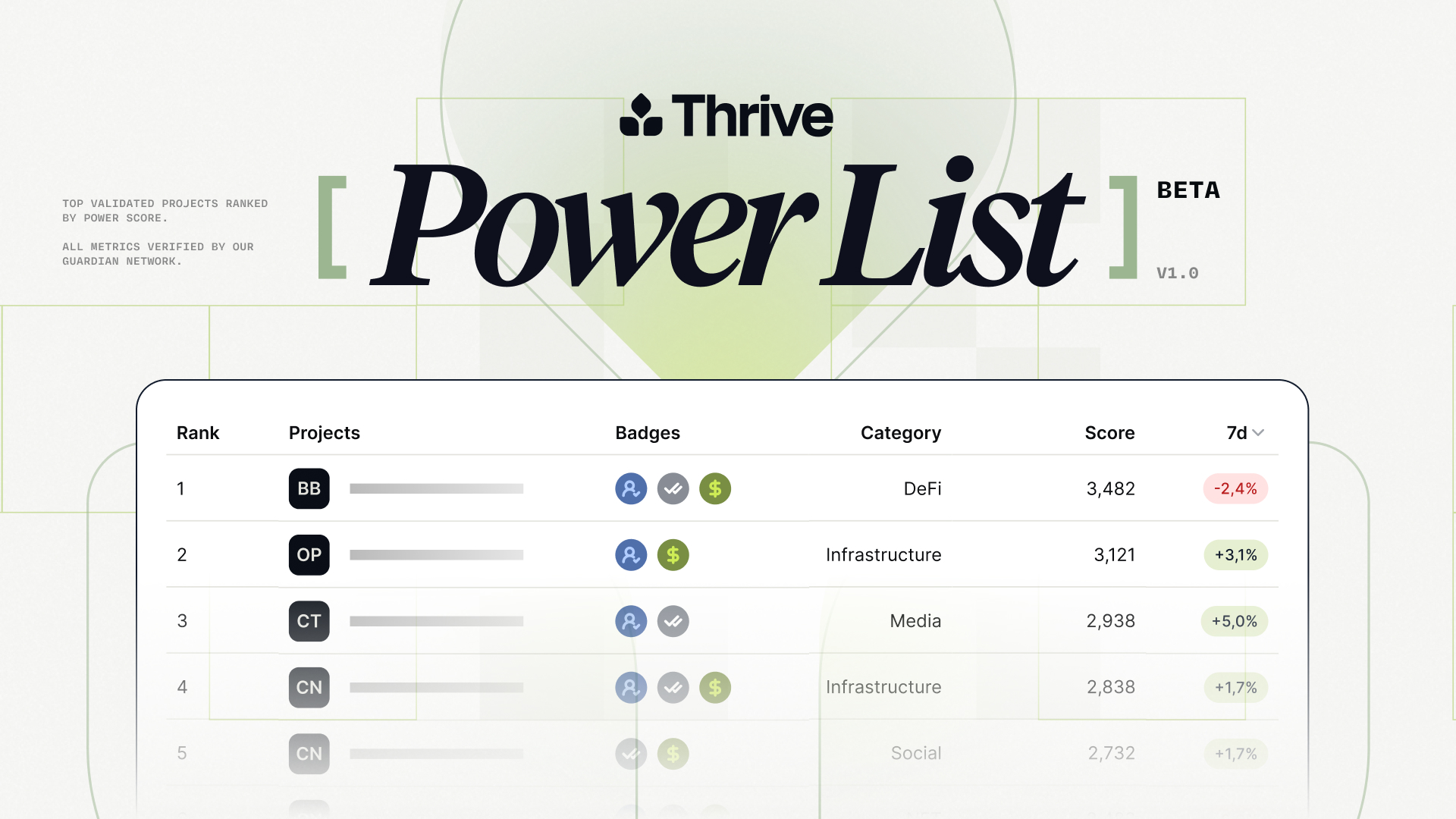The OG Opportunity of Crypto

The story many of us crypto OGs love to tell is that our decentralized, censorship resistant, permissionless world is creating a better, fairer, and more lucrative world for all.
But when most of us reflect, we know it’s… kinda bullshit.
Yes, we’ve made and lost a lot of money together.
But crypto is still clunky… and it isn’t fair.
It can even be argued that crypto is less fair than our centralized counterparts. Rewards for valuable contributions in crypto are sparse, random, and often inequitable.
Based on our work across many of the top ecosystems at Thrive, we estimate that only about 1% of contributors to crypto communities are ever paid for the work they do.
And while crypto has entered many people’s lives, it’s mostly as speculation or, at best, an “investment”. Today 6.8% of the world’s population owns crypto… but almost nobody works in crypto.
For example, there are over 26 million full-time developers in the world. Less than 0.1% work in crypto. That’s it. We think we’re changing the world. But nobody’s home to answer the door.
It’s worth asking, “Why?”
The simple answer: crypto isn’t built for work.
The decentralized, censorship resistant, permissionless world we believe in… works well with simple transactions (e.g. swapping, bridging, trading, staking), but it breaks down with any complexity.
For example, let’s imagine a blockchain community doesn’t have an NFT marketplace, people want one, there are hundreds of millions of dollars worth of the chain’s token to allocate to build one.
In today’s crypto communities, how does a decentralized, censorship resistant, and permissionless set of transactions — occur that pays a great team to go and build that NFT marketplace?
The short answer: it doesn’t.
Here’s what happens instead:
- The receivers of the grant must also be salespeople, diplomats, and politicians to make it through the grants process (e.g. it’s permissioned).
- Eventually a grants committee, elected reps, or the few whales who are the majority of a DAO vote decide (e.g. it’s centralized).
- The receivers of the grant sign a grant agreement that can be restrictive and saddle them with liability (e.g. it’s censored)
Because crypto hasn’t figured out how to scalably put decentralized communities to work in ways that create value (beyond speculation), our best alternative has been to implement centralized models for funding — and call them decentralized.
The impact is that most great talent who would otherwise be attracted to crypto stay away.
There are easier ways to start businesses, get funding, and make money, than going through the pain of navigating bureaucratic “decentralized” ecosystems that are really centralized (yes, including DAOs).
Thus, enormous value is left on the table.
The real opportunity of crypto is to unlock new financial, technology, and community models for all of humanity… but we still can’t figure out how to efficiently pay people in our communities yet.
The future of crypto — the potential of crypto — depends on our ability to change this…. to allow all people to create value for their communities in a way that’s truly decentralized, censorship resistant, and permissionless.
Thrive Protocol is introducing this future to the world. Over the next few weeks I will write a series of articles that detail how we are reimagining work for some of the biggest crypto ecosystems in the world…
… and how, together, we can create the better, fairer, more lucrative world that we imagined for crypto years ago, but that required the right tech and the right community to make possible.





